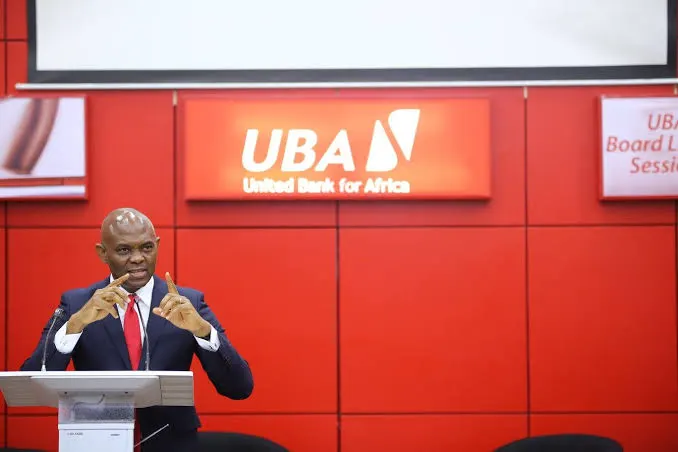Physical Address
60 Ekwema Cres, Layout 460281, Imo
Physical Address
60 Ekwema Cres, Layout 460281, Imo

United Bank for Africa (UBA) achieved record profits in 2024, but some of it was dampened by a loss of N1.14 billion ($744, 200) due to fraud, according to recent audited financial statements. The loss comes a day after Nigerian banks described the challenges in countering fraudulent activities.
Nigerian banking giant UBA, with a loss of N1. 14 billion in the wake of fraud allegations, reported net profit after tax for 2024 (US$493 million), up 26 percent from 607. 7 billion ($391 million) in 2023. Reported fraud losses are growing fears for UBA and the rest of Nigeria’s financial institutions. “In 2024, there were 4. 9 billion ($3. 15 million) worth of transactions associated with fraudulent activities, ” the bank said. About 23 percent of the transactions resulting in financial loss were actually cash outflows.
Electronic fraud, which costs UBA the most, to the tune of 805 million ($518, 000), followed by unauthorised transfers of 314 million ($202, 000) – and thus 88% of the total amount at risk from fraudulent transactions. The figure of 1. 14 billion for UBA demonstrates that even well-profitable banks are not immune to the sophistication of fraudsters.
UBA’s disclosure represents the latest in-depth report on fraud by the lender since 2012, but comes at a time of increasing pressure on Nigerian banks to rein in security breaches. In total, Nigeria’s banks lost out on 10. 1 billion ($6. 7 million) to fraud in the third quarter of 2024 alone, according to a report by the Financial Institutions Training Centre (FITC). While that number fell by 76. 4% compared to the first quarter, the fraudsters are now more sophisticated, with the number of outsiders in fraudulent cases increasing by 70. 4%, and the number of staff-related fraud cases growing by 54% during the same period.
No management or senior employees were involved in any fraud activities which could lead to deficiencies in its internal controls, UBA added. The statement was issued as a reflection on the continuing commitment of UBA to maintain effective and consistent security controls around the bank.
The increased fraud occurrence is the result of broader challenges facing the nation’s banking sector. Earlier in January 2024, the Central Bank of Nigeria (CBN) launched measures designed to tackle fraud, including directing commercial banks to hold the financial responsibility for fraudulent activities that relate to their accounts. UBA has had to ramp up internal controls and adopt more stringent anti-fraud strategies as a result.
The losses suffered by UBA in the fraud case also highlight a larger problem at the heart of Nigeria’s financial system: corruption. Many banks in the country choose not to tell anyone about criminal fraud cases, fearing damage to their reputation. UBA’s transparency is a move in the right direction, and could inspire others to follow suit.
Read Next: Juridoc, a Tunisian Legal-tech Startup, has Successfully Completed a Funding Round
To address these matters, UBA has been active in educating its customers and staff on fraud prevention via targeted educational activities such as its “Fighting Fraud Together” campaign, launched at the end of 2023. The campaign included seminars, webinars, and anti-fraud clinics aimed at empowering stakeholders with tools to safeguard their accounts.
While the UBA loss of N1.14 billion due to fraud is only a small fraction of its record profits, it serves as a stark reminder that even leading financial institutions must remain vigilant against ever-evolving threats of fraud.
Was this information useful? Drop a nice comment below. You can also check out other useful contents by following us on X/Twitter @siliconafritech, Instagram @Siliconafricatech, or Facebook @SiliconAfrica.